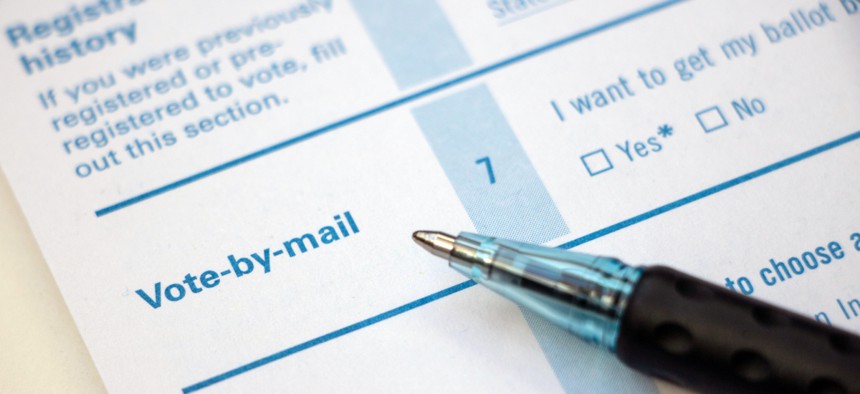Concerned About Mail-In Voting? Maybe a Virtual Assistant Can Help.

Idaho deployed the AI technology after announcing its May primary election would be conducted solely via mail-in ballots. Shutterstock
Idaho is using IBM's virtual assistant platform to answer common questions about mail-in voting, a technology available for free in the lead-up to the presidential election.
In April, amid concerns about the spread of Covid-19, officials in Idaho announced that the state’s May primary election would be conducted solely by mail-in ballot.
Bracing for an influx of questions from voters, Idaho’s secretary of state opted for an unusual solution—using free technology from IBM to set up an online virtual assistant to field common questions about absentee ballots and mail-in voting.
“In short turn, our office needed to communicate the registration and absentee ballot procedures to Idaho voters, and we were bracing ourselves for a wave of calls," Chad Houck, the state’s chief deputy secretary of state, said in a statement. "In just two weeks, two of our people got started with Watson Assistant and trained it to provide important information about how and when to vote."
The technology—IBM’s Watson Assistant, operated on the organization’s public cloud—was provided to Idaho for free for a minimum of 60 days, an offer the company is extending to all states in the lead-up to the 2020 presidential election. Watson draws on artificial intelligence and natural language processing capabilities to understand and respond to common questions about voting, including locations and operating hours of polling places, the details of requesting mail-in ballots and inquiries about voter registration.
The information available to voters is determined by the state they live in, according to IBM, so residents in Idaho receive answers from a range of public sources tapped by officials there, including federal, state and county government websites, digitized documents and news reports.
Officials from IBM assisted with set-up, and within two weeks of the election announcement, visitors to Idaho’s Secretary of State website could ask Watson about mail-in ballots (how to request them, where to send them, how to fill them out), election and registration deadlines and other topics related to voting. (The virtual assistant does not dabble in politics or discuss candidates’ positions on specific issues.) In total, the technology fielded more than 3,300 conversations with voters, freeing staff members to focus on more complex aspects of election preparation.
“That was a huge weight off our shoulders,” Houck said. “It freed us up to serve Idaho voters even better than we were already doing, and it also allowed us to serve our counties better. We’re now exploring how we can use Watson for the remainder of this election season and beyond.”
That includes tapping Watson to answer questions from voters about the 2020 presidential election, which in Idaho will involve the option to vote in person, as well as by mail. (The virtual assistant on Thursday the state “will evaluate” that idea “later on in the year.")
The shift to voting information came after multiple organizations used Watson to answer questions about Covid-19. The success there led officials to believe the technology could be useful in helping “to manage the flood of information requests and questions from citizens regarding voting logistics and resources,” Daniel Hernandez, IBM’s general manager of Data and AI, said in a statement.
Kate Elizabeth Queram is a staff correspondent with Route Fifty and is based in Washington, D.C.
NEXT STORY: 8 data leaders on leveraging data during and after COVID-19





